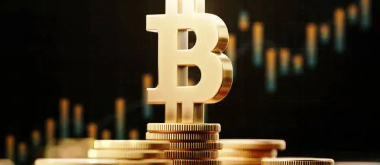In the fast-paced world of trading, where flashy screens, breaking news, and high-stakes decisions dominate the narrative, one trait quietly outperforms them all—patience.

Though often overlooked, patience isn’t just a nice-to-have trait for traders; it’s a non-negotiable pillar of long-term success. In a culture obsessed with speed and immediate gratification, developing the ability to wait—calmly and intentionally— might be the greatest competitive edge a trader can gain.
Trading Isn’t a Sprint—It’s a Waiting Game
Many newcomers fall into the trap of believing that successful trading means being constantly active: buying, selling, and reacting to every market move. But seasoned traders know better.
True trading mastery lies in restraint—the ability to sit out until the conditions are just right. The market is full of noise, but only occasionally does it sing in tune with your strategy. That’s when you strike.
If one were to visualize time spent in trading, it wouldn’t be a flurry of non-stop action. In fact, the majority of time is spent waiting—for a setup to form, for confirmation to appear, for the market to align with your trading plan. Execution is merely the final step of a much longer process.
Patience Filters Out the Noise
The market is never short of opportunities—but not every opportunity is worth taking. The real challenge lies in identifying the high-quality trades that fit within your system. These are rare, and you won’t find them by chasing every price spike or reacting to every rumor.
Impatience, boredom, or the fear of missing out (FOMO) can seduce traders into poor decisions. Chasing trades usually leads to regret, not reward.
Patient traders have learned this the hard way—and they’ve adapted. They wait for the market to come to them. That mindset doesn’t just protect capital; it preserves emotional energy and builds discipline.
Emotional Control Starts with Patience
One of the biggest killers of trading performance is acting on impulse. Emotional reactions—especially during high-volatility moments—can cloud judgment and sabotage even the best strategies.
Patience serves as a buffer against emotional decision-making. It helps you stick to your plan, analyze objectively, and respond based on logic rather than fear or greed.
Without patience, traders are tossed around by every market whim. With patience, they remain grounded—even when the market is anything but.

Preparation Is Where Profits Begin
The old saying, “Proper Prior Preparation Prevents Poor Performance,” couldn’t be more true in trading. The most profitable trades are born not at the moment of execution, but in the hours, days, or even weeks of thoughtful preparation that precede it.
There are three vital phases every trade passes through:
Entry: Waiting for the perfect setup.
Holding: Navigating volatility without flinching.
Exit: Knowing when to cash in—or cut losses.
Each phase demands patience. Rushing even one can turn a good trade into a costly mistake.
Sometimes the Smartest Move Is No Move
Doing nothing may feel counterintuitive in a field where action is praised. But often, the most strategic action is inaction. Not every day is a trading day. Markets move in cycles, and there are periods when the smartest traders simply watch, learn, and preserve their capital.
Patience is not about being idle. It’s a deliberate, focused decision to wait until the odds are in your favor. It’s about knowing your plan, trusting your system, and resisting the pressure to “do something” just for the sake of activity.
Final Thoughts: Survival Is a Skill—Patience Is the Key
Trading is not just about making money—it’s about lasting long enough to keep making money. Without patience, a trader is like a boat in a storm without an anchor: tossed around, directionless, and at the mercy of the waves.
With patience, however, comes stability, clarity, and control.
So the next time you find yourself itching to jump into a trade out of fear, boredom, or excitement—pause. Ask yourself: Is this part of the plan, or just an emotional impulse?
In trading, sometimes the strongest move is simply to wait.














